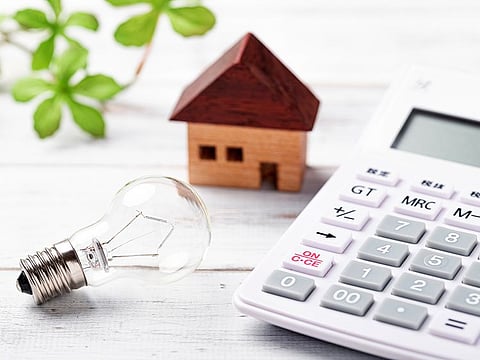Don't sweat the bills: Simple hacks to reduce your UAE summer utility costs
Discover practical ways to conserve energy and water while keeping cool this summer.

Dubai: As the summer heat rises, here’s how you can make sure your water and electricity bill doesn’t rise with it. While you may rely a lot more on your air conditioner (AC) and fridge to stay cool, and shower a lot more frequently, there are ways in which you can optimise usage to keep the monthly bill within budget.
Monitor your usage
The first step in controlling your energy and water usage is to know what your current consumption pattern is.
The Dubai Electricity and Water Authority (DEWA) provides you with a Consumption Assessment Tool, which you can easily access online by following these steps:
- Visit dewa.gov.ae and click on ‘login’.
- Sign in with your UAE Pass.
- You will be redirected to your ‘Smart living dashboard’, which will allow you to look at your monthly consumption, with the option to compare your usage over the years as well.
For a more in-depth assessment, you can also use the Dewa Smart Assessment tool, which will help you target specific consumption habits that can cut down your usage.
There are also some standard best practices that you can follow to bring down the electricity bill.
Air-conditioning
Set it at 24°C: When it comes to your AC thermostat, aim for a cool, but not chilly, 24°C. Remember, every time you reduce the thermostat by one degree, your energy consumption increases by five per cent.
If you are stepping out for a few hours, Dewa recommends that you either switch the AC off, or set it to 27°C. This is why if you don’t have a programmeable thermostat, you should try to get one as soon as possible.
Seal the leaks: Tiny gaps around windows and doors let cool air escape, forcing your AC to work harder. Seal them with weather stripping for an easy and cost-effective fix.
Fans are your friends: Ceiling or pedestal fans use minimal energy and help circulate cool air, making your AC feel more effective.
Block the heat: Keep curtains, blinds, and shades closed during the hottest part of the day to prevent heat from entering your home.
Use major appliances wisely
Plug out: Do you have a tendency to leave your TV, microwave or washing machine on standby mode? If so, you may be pushing your total energy consumption by up to 10 per cent. This is because on standby mode, appliances continue to use electricity, whether it is your dishwasher or phone charger. “While it might not seem much at any given time, collectively this can account for up to 10 per cent of your household's electricity consumption. The solution to this problem is to simply switch-off devices at the main plug when not in use,” Dewa states on its website.
Wash smarter, not harder: Run dishwashers and washing machines only with full loads and consider cooler water settings. When possible, ditch the dryer and hang your clothes outside.
Upgrade for savings: If you have been using the same AC for over 10 years, it may be time to buy a new one. While this may seem like an additional cost, investing in appliances that have a high Emirates Authority for Standardisation and Metrology (ESMA) rating can help you reduce your energy consumption costs. Jut as an example, teplacing an old AC with a new energy-efficient model with up to four- or five-star ESMA ratings can save you up to 25 per cent on cooling costs.
Lighten up: Replace your old incandescent bulbs with energy-efficient LEDs. They use up to 80 per cent less energy and last much longer. Using light dimmers, which allow you to control the light settings and help reduce costs.
Fix those drips
When it comes to water consumption, there are different things you can do to reduce it. Firstly, check for any leaks and get them fixed immediately. Also, adding water-efficient showerheads and aerators on your faucets can significantly reduce water flow. Pick a water-efficient showerhead with a flow rate of less than eight litres per minute. Aerators on faucets can reduce faucet water use by up to 40 per cent.
Finally, turn off the tap while brushing your teeth or shaving. Wash vegetables in a bowl instead of under running water and use that to water plants to optimise your water usage. Every drop saved adds up.
Shift your schedule of chores
During peak summer hours (typically from 12 to 6pm), avoid using major appliances like washing machines and dishwashers. Try to run them earlier in the morning or later in the evening. This helps reduce the load on power plants and has a positive environmental impact.
Sign up for the Daily Briefing
Get the latest news and updates straight to your inbox


